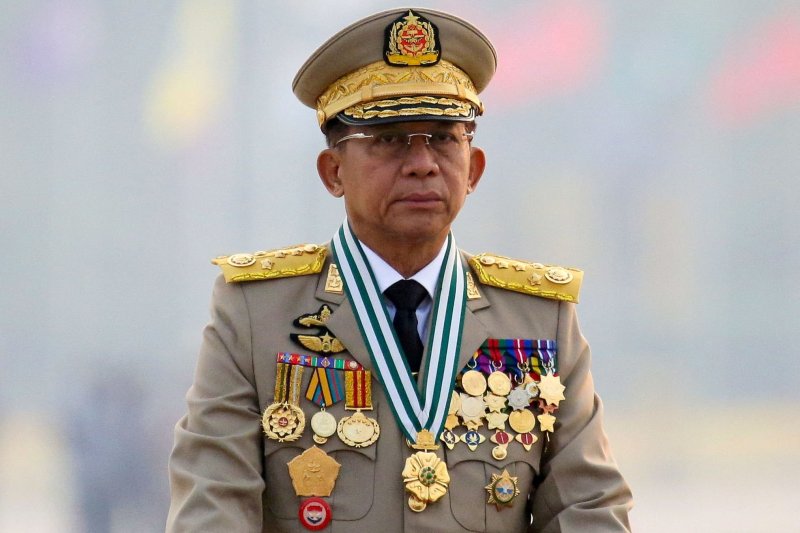
Myanmar junta continues air strikes after devastating earthquake

The UN has described the attacks as "completely outrageous and unacceptable".
Special Rapporteur Tom Andrews told the BBC that it was "nothing short of incredible" that the military was continuing to "drop bombs when you are trying to rescue people" after the earthquake.
He called on the military regime, which seized power in a coup nearly four years ago to stop all military operations.
"Anyone who has influence on the military needs to step up the pressure and make it very clear that this is not acceptable," he said.
I'm calling upon the junta to just stop, stop any of its military operations," he added.
BBC Burmese confirmed that seven people were killed in an air strike in Naungcho in northern Shan state. This strike took place around 15:30 local time, less than three hours after the quake struck.
Pro-democracy rebel groups that are fighting to remove the military from power have reported aerial bombings in Chang-U township in the north-western Sagaing region, the epicentre of the quake. There are also reports of airstrikes in regions near the Thai border.
The National Unity Government (NUG), which represents the ousted civilian administration, said in a statement that its armed forces would begin a two-week pause in "offensive military operations, except for defensive actions" in areas affected by the earthquake, from Sunday.
The 7.7 magnitude earthquake that struck Sagaing was also felt in neighbouring countries. It was followed by reports of destruction coming from nearby Mandalay - Myanmar's second largest city - as well as the capital, Nay Pyi Taw, which is more than 150 miles (241km) away.
The junta says 1,644 people are known to have died and many more are believed to be trapped under rubble.
A BBC investigation revealed that nearly four years after seizing power in a coup, the military now controls less than a quarter of the country.
The investigation revealed that ethnic armies and a patchwork of resistance groups now control 42% of the country's land mass, while much of the remaining area remains contested.
It's in aerial combat that the military regime has the upper hand. Resistance groups lack the capacity to fight back in the air.
The military has a history of carrying out indiscriminate aerial bombardments that have destroyed schools, monasteries, churches, and hospitals. In one of the deadliest airstrikes, more than 170 people were killed, including many women and children.
The UN body investigating human rights violations in the country has warned that the military junta is committing war crimes and crimes against humanity against its own people.
The military's aerial warfare is being sustained by continued support from Russia and China. Despite UN calls for an arms embargo in response to the coup, both China and Russia have sold the junta sophisticated attack jets and provided training on how to use it.
Russia and China have also now sent aid and rescue teams into Myanmar. But UK-based Burmese rights activist Julie Khine said: "It's hard to trust the sympathy now, when they're also the same countries supplying the military junta with deadly weapons used to kill our innocent civilians."


